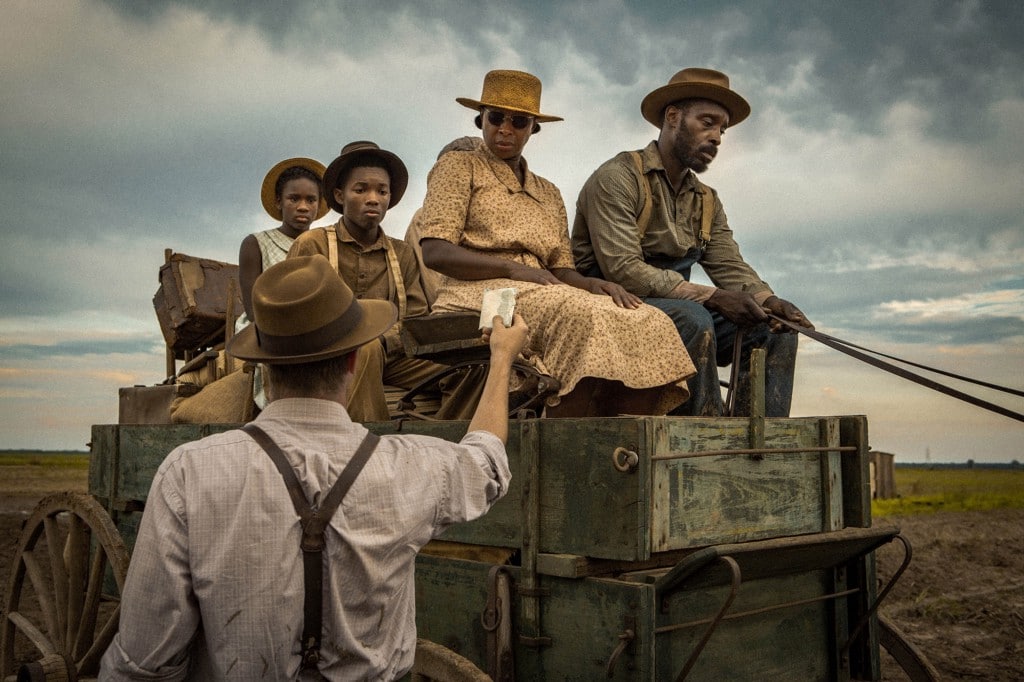Review – Mudbound Stumbles Before Recovering in Astounding Fashion
Mudbound Delivers With an Astounding Finale
The latest from Pariah filmmaker Dee Rees stumbles before finally achieving greatness.

Each year, a film (sometimes two) at Sundance stirs up such strong, unanimous celebration that it instantly plunges itself into an Oscar race more than a year away. Last year those films were Birth of a Nation and Manchester by the Sea. Of course, Birth of a Nation suffered from the revelation that its director was involved in an assault years before. Manchester by the Sea, on the other hand, lasted for the long haul, now on its way to many Oscar nominations, some of which it can surely win. Minutes into the end credits of Dee Rees’ Mudbound, Twitter was stormed with pundits claiming the film as a major contender for 2018’s Oscar race. Approaching the halfway point of the festival, I’m fairly confident in saying that Mudbound is not the best thing here. Nevertheless, the film packs a punch and concludes with a devastatingly powerful final act.
As America is thrust into the Second World War, two families in rural Mississippi are pushed into close quarters. Laura and Henry McAllan (Carey Mulligan and Jason Clarke) have left the city to live on a vast farmland. Part of this land is leased to Hap Jackson (Rob Morgan), who farms cotton while his wife Florence (A near unrecognizable Mary J. Blige) cares for their large family. While abundant racism challenges to divide them, the families are bound by a shared empathy and the raging war. Both Henry’s brother Jamie (Garrett Hedlund) and eldest Jackson son Ronsel (Jason Mitchell) enlist. When they return shell-shocked and unoptimistic that the bond between the families ruptures.
Dee Rees’ film begins in a frustratingly confounding manner. Voice-over narrations from different characters quickly bring As I Lay Dying to mind; the Falkner novel similarly begins with a burial preparation. The multiple narrators make Mudbound’s opening scenes a little difficult to settle into. For the good of the overall product, the voiceovers halt and the film is allowed to pursue the multi-faceted plot uninterrupted.
Aside from its unparalleled examination of race relations of the time period, Mudbound should perhaps be most celebrated for the intricate relationships it explores. It is through three relationships that the strength of both Rees’ screenplay and her ensemble triumphs. Laura and her brother-in-law Jamie share a unique attraction to one another. Laura proclaims herself a good wife to Henry, but it is only with his brother that she can feel and reciprocate desire. Henry, fighting not to return Laura’s feelings, creates an impenetrable bond with Ronsel. The two men share similar war experiences, each having witnessed the brutal deaths of their fellow soldiers in combat. The film’s most complex relationship is that of Henry and Hap. There is an understanding established between these two characters that goes far beyond words. Conversing sparsely, Clarke and Morgan create incredible tension simply through the way they look at each other.
A lengthy film (at least in Sundance terms), Mudbound takes its time before grounding itself as a great film. Emotional stakes are high throughout, but it is when the film thrusts its characters in life-altering situations that Rees’ storytelling fully thrives. The last twenty minutes or so of Mudbound are incredible. It is when Rees forces her characters against one another that the film achieves a true sense of profundity. It is this final act that is going to stick with viewers hours after watching the film. Yet, the powerful ending will likely cloud over the muddled first act. Once it finds its footing, Mudbound becomes a great film. The journey to this greatness is a messy one, but it is greatness nonetheless.
